How Does Corporate Space Planning & Design Affect Productivity? When things are lopsided in your business offices, the employees will look at the world through a skewed lens. Having a good flow and energy in your space using Feng Shui principles ( I know it sounds like hocus) helps everyone in the space surge with good energy, forward and clear thinking, and a thrust of productivity. The idea that the outer is a reflection of the inner is an absolutely true statement. After my teams organized and decluttered over 3500 commercial and residential properties in the past 14 years with my company, I-Deal-Lifestyle Inc., I can attest to that type of life-changing, and my clients all will, too. Obviously, when the furniture is in the incorrect place, and people are huddled together or facing each other, it does not lend to the creative flow, and energy will decline. The environment you want to create for increased value to your employees and customers will be aesthetically beautiful and functional. The space will put a smile on your face as soon as you walk through the door, and the desire to work, engage in team building, and discover new business will flourish. To change your space/life/work philosophy and manifest growth and fruition in your business, we will help at www.i-deal-lifestyle.com. The inner process of employees' well-being is certain to improve with an optimal environment, yet that new and awesome office design will not fix poor communication, unsavory strategies, and a "think outside the box" unfocused, confused, non-solution-based operation. I-Deal-Lifestyle Inc. offers C-Level, Management, and Employee improvement programs that will shift and shake up low energy, missed appointments, slow follow-through, miscommunication, and tremendous fowl ups. We declutter the funky strategies you want to fix for everyone's benefit. We unlock clumsy communication, send low production to the curb, and instill C-level leaders, managers, and employees with new assertive and helpful language. We cover the outer and inner/emotional processes for your entire corporate experience. Email us at [email protected] for a free presentation of our services. www.i-deal-lifestyle.com
0 Comments
Did you know you can use Feng Shui to enhance bookshelves? Marla Stone, MSW and Declutter Your Strategy expert, says, "Yes, you can Feng Shui your Bookshelves." Use the Bagua above as your template. Place Bagua upright in front of your bookshelf so you know where your books can be placed to Feng Shui the bookshelf. So, when facing your bookshelf, big or small, rectangular or square, simply divide the bookshelf into nine (9) equal parts.
The far left-hand corner on the shelf's top is for all your money books. This is where you would put books by billionaires, smart financial people, or books that state something positive about gaining wealth. The middle top of the shelf is where you place awards you have received, and you can put a little décor into the shelf that signifies fame and recognition of you and your family. Any bright-colored books on what you are famous for or what you would like to be recognized for can also go into this area. The top right-hand side of the shelves is where all the Love and Romance books go. I do not recommend Romance Novels since they can actually create depression if you become too involved in them. But go ahead and put Romantic Poetry, anything shaped like a heart or red or purple décor. The middle left of the bookshelf is an excellent place to put some family pictures since that is the family area, where you can put "getting along with family" books, and books related to family ties. The middle of the shelf is for spiritual books, spiritual awareness books, and books related to health and happiness. The far right middle is for Children's books, books that promote creativity, art books, or any books that make you feel more creative. This is also a good place for artwork décor. The bottom left is for books that increase your skills and knowledge. This is where you put books or information on a subject you want to improve on. The middle of the bottom of your shelf is where you put books related to your career or building a career, and last but not least, the bottom right is for books related to helping people or support books that uplift you and help you feel more supported. It could also be a great place to put books from your ancestors, pictures of angels, or uplifting spiritual leaders. Organizing your bookshelf according to Feng Shui Principles helps you get organized and feel organized and impacts the nine areas of your life that Feng Shui addresses. Take some time to Feng Shui bookshelves, and your life will Change! CEO, I-Deal-Lifestyle Inc & Author of The Clutter Remedy: A Guide To Getting Organized For Those Who Love Their Stuff www.i-deallifestyle.com [email protected] You don't have to believe in Feng Shui, yet it will help you make lots and lots of money and have better health and happiness in all aspects of your life." Marla Stone
The Feng Shui principles work to help space challenges or disturbances. The home’s architecture and/or landscaping contribute to the flow of the “chi” (good energy, thoughts, and ideas). A Bagua tool (above) identifies specific areas of your space. When used as a template for organizing, the Bagua tool helps sort out your stuff beneficially and functionally. Check out the e-book "ORGANIZE YOUR HOME WITH A FENG SHUI TEMPLATE." After downloading the book, print out the free Bagua template. Hold the template in your hands, standing at the front entrance of your home, to identify the 9 areas of your home. Visualize the Bagua template placed over your floor plan from the front of your home, where you enter. You will then determine if your front door is in the KNOWLEDGE, WISDOM, CAREER, OR HELPING PEOPLE AND TRAVEL AREA. If you are standing at your front entrance and the door is to the far left, you enter through KNOWLEDGE and WISDOM. If your front door is in the middle of the home, you are entering through CAREER, and if your front door is to the right of the home's front, then you enter through HELPING PEOPLE AND TRAVEL. So, when you identify the bottom part of the bagua, the rest of the floor plan will be easily identified when you have a rectangular or square home. But here's the thing: most of us do not have a perfectly rectangular or square house, and even if we do, a second floor may have some part missing unless it duplicates the first floor exactly. So what do you do if some part of your home is missing a Bagua area or extends outside of the Bagua area? What do you do if the front entrance of your home is on the side of the home or even in the back? There are tricks of the trade in the book, one of which is that wherever your front door is that you go in and out of your home, the Bagua template starts. Placement of furniture, trees, vases, equipment, family photos, books, chairs, tables, lighting, artwork, electrical equipment, telephones, and wires want to be considered to protect the “chi” from affecting the inhabitants. Open-door rooms create negative energy when they face stairwells. Placing a red carpet at the foot of the stairs to protect the “chi” energy is considered a Feng Shui "Fix." Windows or mirrors facing each other in rooms or rooms without windows keep energy keyed up. A landscaping faux pas, for instance, is a tree in front of your front door. The tree, in essence, blocks any good power from coming into the home. Furniture placed in a blocking way instead of open to the entrance of a room fiercely impacts you. A friend had his couch blocking part of the entrance to his front door (career area), and his business dropped in sales significantly. When I saw the placement of his couch, I asked him if he was having business challenges, and he asked, "How did you know?" Well, that is what a Feng Shui Specialist knows from looking at your floorplan and the design of the home or offices! For instance, when you walk into a room, and the back of a couch faces you, it is not only a block in that part of your Bagua; it symbolizes things that keep coming up from behind, challenges that come "out of the blue," and it is poor styling in most cases. If there is no other way to place the couch, then you want to have a mirror positioned so that, when sitting on the sofa, you can look into the mirror to see the entrance or door to the room. Also, the colors of your walls interior and exterior, types of objects, odd-shaped spaces, beams or sharp corners, where the bathrooms or kitchens are located, and what is painted in a painting, depending on where the image is placed, can all affect the energy and prosperity, health, relationships, recognition, personally and professionally, for all who work or live in the space. Going deeper into Feng Shui, you want to know the year your home was built and determine the best position for your bed by calculating your birthplace information. Feng Shui positioning of your furniture helps assess fortune or misfortune, even when it looks aesthetically pleasing. Feng Shu fixes are utilized to correct most architectural, landscaping, and decor challenges while enhancing all areas of your self and space. Getting help from a Feng Shui specialist will help you with what you choose to bring into your home or what to get rid of. What kind of art you choose is your choice, but some art pieces may not reflect your intentions for life growth. Artwork and decor have different colors, are made of various elements, and can be matched to the best area of your home. Plants and or trees in and outside of your home can be placed for better energy flow or symbolize positively or negatively based on where they are placed. What kind of furniture you choose means good or bad health to those who utilize the furniture. CEO, I-Deal-Lifestyle Inc & Author of The Clutter Remedy: A Guide To Getting Organized For Those Who Love Their Stuff www.i-deallifestyle.com [email protected] Let’s get you some great chi, and/or let’s just have some tea!
Einstein had a cluttered desk, and when he heard the saying, "A cluttered desk is a sign of a cluttered mind," he responded, "So does that mean an empty desk is a sign of an empty mind?" Our answer is that your desk may be cluttered and overwhelming when creating and working on projects, but at the end of the day, you can create a place to clear the contents and put things away so the next day starts fresh. A home for everything is good, a system for papers is intelligent, and coming in the next day with a new, clean desk is always a relief. We are never wholly clutter-free and paperless. Having a system is vital to getting and staying organized. Being organized definitely creates an affinity for excellence. Feng Shui principles support businesses perfectly.
Feng Shui for managing a business will be fun, exciting, and stirring. A business consultant who uses the principles of Feng Shui understands intricate aspects of your furniture placement and where the executive staff is best seated. Finding belongings in your office that bring you great pleasure and that you love is critical. It is essential to focus on what kinds of objects and furniture are in your office and what they mean to you. Placing the things you love in specific places will increase well-being, prosperity, business connections, and employee and customer satisfaction. Life is too short to be surrounded by personal or professional belongings that you find depressing, a burden, or that you simply like. Keeping things you love around you will create energy, clarity, and focus. A shift will occur by moving items around until a great flow and energy is produced. Having a flow and space to breathe and feel whole is essential to staying organized and in tune with your surroundings, enhancing an ideal lifestyle and work ethic. An ideal lifestyle is created by aligning your values with your goals and achieving everything you want. I-Deal-Lifestyle Inc. is where you learn more about enhancing your corporate or business space. Feng Shui can help you gain new community relationships, decrease employee turnover, help you leverage your workforce, retain clients, and gain power within your field. Feng Shui is used by many Hollywood Stars and Billionaires, so their dwellings and offices have a feeling of luxury, space, and overall ease. Feng Shui may be used to unlock and eliminate many typical troubles people face. Feng Shui can address Chronic Disorganization, Attention Deficit Disorder, Depression, and Anxiety. Feng Shui can improve unhealthy family relationships, learning challenges, and Insomnia. It can help loveless relationships, increase money, decrease poor health, and avoid cluttering patterns. Feng Shui principles address not increasing support and creativity. If you or any of your loved ones or employees suffer from these symptoms, call Marla Stone at 1-949-709-7000 for a free 30-minute consultation. Feng Shui is an Ancient Science and Art created in China over 4000 Years ago. Marla Stone is a Feng Shui Specialist, mixing her 25 + years of Knowledge with Interior Décor and Professional Organizing, as well as her Social Worker and Therapist background. Your business can be in perfect order with Feng Shui Designs by Marla Stone and her team of Professional Organizers, Lifestyle Coaches, Feng Shui, and Interior Décor Specialists. We move your business forward with upcycling, recycling, and swapping out older furniture that has grown old and outdated for new furniture that will create your ideal setting for Your Today Taste. Feng Shui helps with the energy and flow of your office space, creating synergy and uplifting employees and customers. Your space is a reflection of your company and what it stands for. Having an assessment to check out your office space is essential since furniture placement and where your executive staff is seated could mean an increase in revenue, closing lucrative deals, staying ahead of your competition, or just being able to relax more in your busy work schedule. Call now for a free 30-minute phone 1-949-709-7000 or email> www.i-deallifestyle.com CEO, I-Deal-Lifestyle Inc & Author of The Clutter Remedy: A Guide To Getting Organized For Those Who Love Their Stuff Learning Feng Shui is easy when you have a teacher that makes it easy. Learning Feng Shui in depth can take years, like learning a language. But the basics of understanding the Bagua (floor plan map) of your home and or office is relatively easy. Basic Feng Shui will teach you how to set up any home, business, or office space properly. Understanding the basics will teach you how to place furniture, which direction furniture pieces like desks, beds, and couches optimally face, what objects belong where, and what things can be eliminated or added. Basic Feng Shui will help you understand each area of a home and what it represents. Recognizing each space, room, home, business, or office is divided into 9 equal parts helps you understand what activities would be best accomplished in what amount of each space. Download your free Feng Shui Book here> Feng Shui Booklet
You will understand that the 9 areas of any space are Love and Relationships, Fame and Recognition, Prosperity, Children and Creativity, Health, Family, Helping People and Travel, Career and Skills and Knowledge, and how each area affects you, your life, and your family. You will understand how to navigate the Bagua Map and find out how to locate the above areas in any space you go into. You can do Feng Shui in your own room easily and quickly. Friends, family, and clients will marvel at your skill level, intuitive process, and how you will help them re-purpose furniture and set it up so there is a more aesthetic and creative design. When looking at what you already own and thinking about purchasing, Ask yourself, "Does this stuff work for me? Feng Shui is an ancient Science and Art originally named in China over 4000 years ago. The principles of Feng Shui are used in many cultures by famous people and business owners worldwide. Going into people's homes for years, I realized some people who have never heard of Feng Shui do it naturally, while others lack energy and flow and live in chaos and discomfort. When I give Feng Shui tips, ideas, and suggestions to the latter clients, often they remark, "That's how I used to have the space set up." With grief, loss, divorce, and life-changing events, people often undo their good energy and flow and create a space that reflects their sorrowful inner self. The primary goal of Feng Shui Specialists is to help people get back an ideal living space. Helping people increase wellness in their health, relationships, family, children, loved ones, creativity, and wealth at work and school is the aim and point of Feng Shui. Feng Shui is a great way to purge items that do not belong in your space. Pictures of sad and lonely people, fake plants and flowers, things that hold negative memories, or objects that just don't reflect your being or nature tend to dampen the energy of the space and the occupants. Many of my clients tend to keep items that are never used, don't serve a purpose, are not sentimental, and that they just don't love but have difficulty parting with them. Feng Shui makes editing fun and easy. You will learn how to de-clutter with Feng Shui principles. Getting better energy and flow to all areas of your home, business, and office is a great idea; you will learn how to do it yourself. A Feng Shui expert will come into your home, office, or business and teach you all the tricks of the trade on-site and get your space Feng Shui'd on the spot. The Feng Shui teaching packages are 4 hours for $340.00, 6 hours for $510.00, and 8 hours for $680.00. You will know every aspect of Feng Shui you can absorb in your session. You can perform Feng Shui for a deserving family member and/or friend. You can practice Feng Shui independently by the time your session(s) end. Wouldn't this be a fun gift for you or someone you love? You can also get an I-Deal-Lifestyle Feng Shui Specialist Certificate by learning from Marla Stone. Feng Shui business or just helping family and friends with confidence. On-going consultations with a Feng Shui Specialist over Skype, telephone, or email are always available by appointment. Working with a Feng Shui Master, Feng Shui Teacher, and Feng Shui Specialist is the best way to learn how to do Feng Shui. Find out more about getting a free 30-minute consultation to become a Certified I-Deal-Lifestyle Feng Shui Specialist now at 1-949-709-7000 or email [email protected] Preparing and decorating your home with a Feng Shui designer always includes decluttering. I-Deal-Lifestyle Inc. is designed to get you organized from the inside out and outside. Decluttering involves sorting all your belongings into like categories. We clear your space first, categorize everything you own into broad categories, and then create containment systems for your stuff so everything does not smoosh back together and create clutter chaos again.
Once categorized, you can review your items before the containment to determine if they are "good" Feng Shui. "Good" Feng Shui means that things have great energy and create a happy feeling when you see them. "Good" Feng Shui also means excellent furniture and decor placement. Great furniture and decor placement create good energy and flow in each room. Feng Shui placement also includes the order of items that are symbolic of the Bagua areas in your home. The Bagua template divides your floor plan into nine equal parts. You start from your front door to determine your nine areas. It sounds complicated, yet it is easy to locate the 9 regions. Download a free Feng Shui Booklet here> Feng Shui Booklet The nine (9) Bagua areas are
& Author of The Clutter Remedy: A Guide To Getting Organized For Those Who Love Their Stuff 949-709-7000 www.i-deallifestyle.com [email protected] Update Your Home with Everything You Already Own by Marla Stone, MSW, Corporate Consultant1/19/2023 Going discount for decor via Craigslist, Facebook Marketplace, sell/buy groups, and consignment is the decorator trend. Finding what you love is the key. Finding what you love is divine intervention.
Southern California's ever-changing interior design trends are switching to a more transitional approach for decorating business and residence properties. Incorporating modern elements and accessories with ornate antique pieces painted in a matt finish is an up-and-coming trend in the retail store styles of home furnishings and decor. With simple touches of the old and new combined, it helps create a unified look for both old and new generations to enjoy. When renovating or redecorating a home, the goal is to create an appealing space with a new and universal look. Designers and stylists have found plenty of new ways to incorporate the past with the present, but doing it with a splash of innovative creativity is vital to loving what you have. Renovated public malls, restaurants, hotels, and large chain home furnishing retail stores are the best places to look for design inspiration. On a trip to Harrods Department store in London, Marla Stone, owner of www.i-deal-lifestyle, was amazed at the unique and lovely designs room by room, floor by floor. Just know this: you know what you like and do not like. Could you just stick with that? Most people make the biggest mistake in decorating when they scratch everything they own and go for a generic-looking trend. Using some of your current furniture and decor with updating and eclectic styling can significantly benefit your property's look. Looking around at Craigslist ads, you will see a lot of potential in custom handcrafted furniture. Adding a coat of new paint or creating a faux rustic finish to an antique heirloom can save you $ 1000 on today's in-store retail prices. I-Deal-Lifestyle services allow you to recreate a functional space with a green design and the proper decor for an organized living space. I-deal-lifestyle's design approach includes Feng Shui principles, which help with furniture placement, space planning, and a good circulation pattern. If the room doesn't feel "spot on," or you constantly walk around a table or couch daily, your room is not set up correctly. The scale of home furnishings is another dilemma that most new homeowners find when either downsizing their home or simply buying a house that is too large for their recent small-scale furnishings. Knowing what items you own and the condition of each piece of furniture are vital to the decision-making process for planning a design in a new or old space. It is a wise investment when you plan on refurbishing a specific piece that may or may not have been kept in the most superb condition. Simple things like "Do the drawers open?", "Is the fabric stained?" "Are the cushions still comfortable?" are the three basic questions that will cover the basis of knowing what to keep, if any, functional piece of furniture you own. When determining the use of a piece of decor that simply serves the aesthetic purpose of sitting on a table or hanging on a wall, it tends to be the more sentimental items that homeowners often have a more difficult time deciding whether to donate or keep. To determine if it is worth keeping, ask yourself, "DO I LOVE IT?" If yes, it is an accessory that will play a vital role in determining the color scheme and style you want your new space to be designed around. Finding that one piece you love can tell any designer or decorator a lot about your interest in what you can see yourself looking at and living around every day. The biggest misconception in design, for people who are not in a creative field and are more functional and practical-based, is that they want more objectivity when it comes to design. This is entirely NOT TRUE! You can find your ideal style today by considering the above basic concepts for determining your taste in what items you own and donate. http://www.i-deal-lifestyle.com Marla Stone CEO, I-Deal-Lifestyle Inc & Author of The Clutter Remedy: A Guide To Getting Organized For Those Who Love Their Stuff www.i-deallifestyle.com [email protected] Utilizing the skills of a Feng Shui Real Estate Professional is essential not only for the skills that tell a person if the house is "good" feng shui but also for having the guidance of a sensitive person who understands real estate, values, design, and function. Recently, I helped a woman looking for a home in Laguna Beach, and last month in Irvine; before that, I helped people find the best homes from Coto De Caza, San Clement to Dana Point and Newport Beach.
Growing up with a dad who was a real estate developer for over sixty years, having a real estate appraiser husband, and an extensive background in Feng Shui have influenced my ability to pick fabulous properties with investments written all over them. Also, with my social work and psychotherapy background, I understand people and have great intuition when matching people with properties. My main goal in helping people seek properties is for the land parcel and dwelling to work for them aesthetically, professionally, and personally and be excellent investment prospects. Being a licensed real estate professional and owning a professional consulting and design business makes finding your ideal home or corporate business space straightforward. The first thing I do is understand what my client's values are in life, personally, professionally, and socially. I guide you to different destinations depending on whether you are an empty nester looking for quiet with no noisy kid areas or loud mowers and blowers going 24/7. If the client loves to entertain yet is looking at a home with a small living room and dining areas, I will help them understand the house does not lend to large groups or small intimate parties. If the family has growing kids that love athletics, yet the neighborhood is empty nesters with no grass options or other kids, then let's look at more options. I understand that a great and creative cook/entertainer is looking for a large and functional kitchen; a person with physical functionality challenges doesn't want multiple levels. Sensitive-to-energy types don't like many power lines, and beach people don't like properties 30 minutes away from the ocean. Knowing my clients is number one for me to help them get to the correct neighborhood, plot of land, and space. Feng Shui aspects are essential to include when looking for property. Most notable is that the property is on a rectangular lot. Homes on triangular or oddly shaped lots leave a resident unsettled. Also, homes with another home hovering over them can create less prosperity and less privacy. Bedrooms, where the headboard faces west if you are born in the Western world or facing east if you were born in the Eastern world, may cause health challenges and disturbed sleep. Other negative features are homes with stairs directly down to the front door, houses with fire pits or fireplaces in the prosperity section of the backyard, or pools located anywhere other than the prosperity area. Water features are always great Feng Shui in the prosperity areas of a property. More negative aspects and examples of bad Feng Shui are encroaching properties, loud street noise, damaged or destructed properties, choppy floor plans, homes with poor wall-to-window ratio, driveways where you have to back out, no parking near the house, and homes that are below street level. However, there are Feng Shui fixes for most negative aspects. Selling or locating properties for clients is all about client happiness. Honing in on people's personalities helps me identify neighborhood, city, and even state properties that will work for clients long term. It is more than a one-stop-shop opportunity. Real estate professionals' job is to find a property that fits the client rather than benefit themselves. It is not about the real estate professional paying off a second mortgage or sending a child to college or a new grandbaby. Also, some professionals who tell you there is only a little inventory may want to sell you specific homes where they benefit most. Make sure your real estate professional has your best interest at heart. www.i-deallifestyle.com [email protected] Marla Stone, CEO of I-Deal-Lifestyle Inc. & Author of The Clutter Remedy: A Guide To Getting Organized For Those Who Love Their Stuff Why do we have a "Bucket List?" As lore tells us, slaughtered animals kicked the bucket below them before they died. The bucket was placed below the doomed animal to catch its blood. What a gruesome image. So, to turn the bucket into a more promising and better vision, we have now come up with the term "bucket list."
Today, the bucket is symbolic of a dream catcher. Our whims and hopes dropped one by one into a pail we carry around our necks without emptying it. It's just a drop in the bucket for everything we can think of doing before we die. Instead, the receptacle for all our wishes, longings, and desires is our way of temporizing time and activities. How weird that we shovel into a bucket our wish lists, things we want to challenge ourselves to, the must-dos, plans, and goals. We hurtle and dump fabulous experiences and life's precious moments into a red plastic or gray metal vessel, your choice. Before we "kick the bucket," I say empty it of wants and longing and kick it as far away as possible. I suggest a "Now List." A New Now List is an exercise to do everything you dream of now. Why wait until you're half dead to do everything you desire? I know the excuses you will conjure up: the money, the time, the strength, and the stamina. The job, the kids, and the pets may prevent you from fulfilling even the simplest of your grails and targets. Why, though, is the question? Why would you often think deeply and with such fortitude about satisfying and worthwhile situations and not follow through with them? What are your excuses? Why don't you do the things you say you want to do? What is in your way? Whatever your answer is, why not liberate yourself? Either empty the bucket, figure out whether your idle itches will happen and when, or make a List and stop procrastinating. Stop carrying on about all these fantasies. Living with one foot in front of the other, in a dreamy daze of to-do's, cannot be fun. Start doing the escapades, climbing the trails of glory, begin your living now list, and put them in your #googlecalendar immediately. Get on with your extraordinary life, spark the magical beams across the universe, # organizeethegarage, think about #buyinganewhome #decoratethekidsroom, #learnanewlanguage, and #traveltoanexoticdestiny. Live bigger than you ever imagined. Live like it is your birthday every day, and enjoy life's pleasures. You deserve #thebestthingsinlife now. So go ahead, make a list, and make it sensible. #Flyingtothemoon, #buyingamazeratti, and #goingaroundtheworld can be part of the list. Don't hold back your most outrageous ideas. Then, could you visualize how to make it happen? Seriously, people have been known to come back to life after being pronounced dead. Anything is possible when you have a Now List in front of you. Hey, if you are saying to yourself, that sounds ridiculous, I say, "Nah." What is absurd is thinking that you'll get your way in life, carrying around an empty bucket of invisible dreams. Marla Stone, MSW, Life and Business Consultant CEO, I-Deal-Lifestyle Inc. www.i-deal-lifestyle.com |
Here, you will find an array of blog articles about living an ideal lifestyle and how to improve corporate business strategies.Marla is known as the Declutter Your Strategy™ expert. Marla earned her BA in Psychology and a Master's in Social Work. Stone is the founder of |

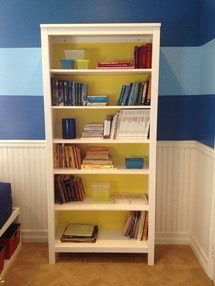


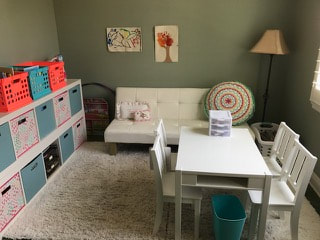
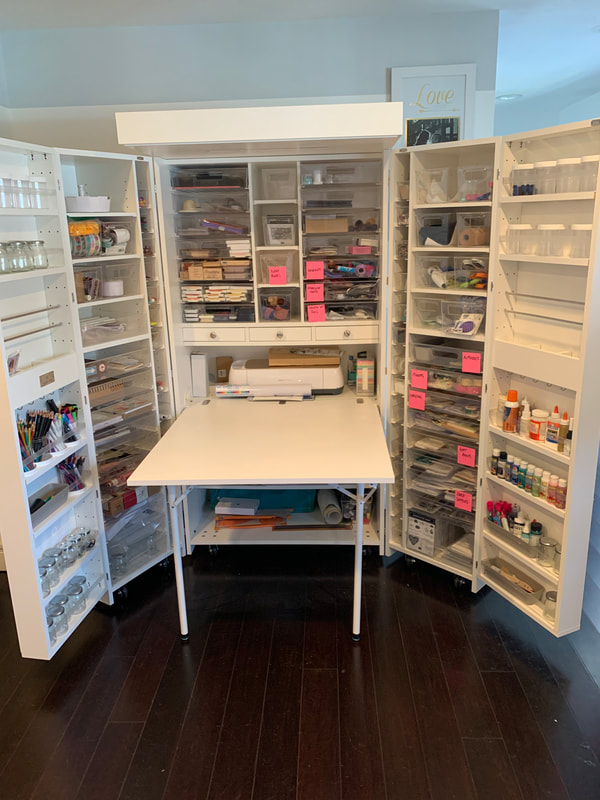

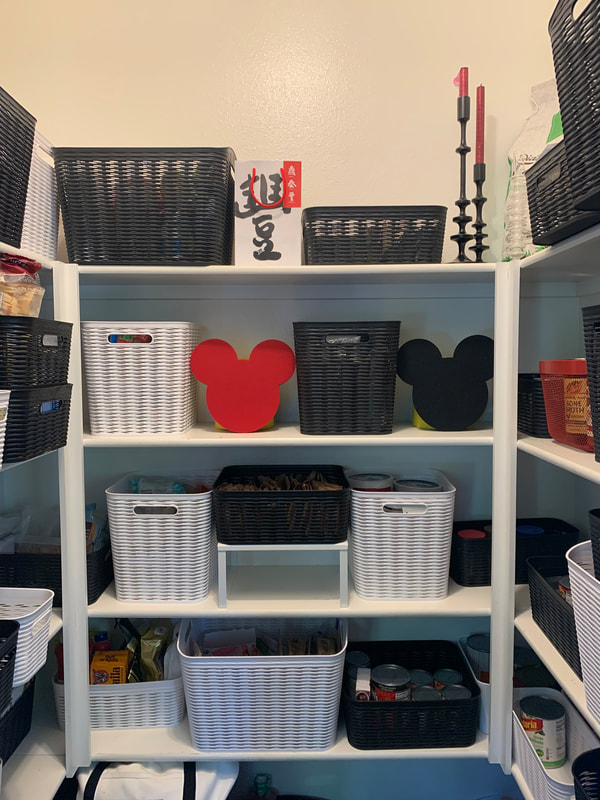
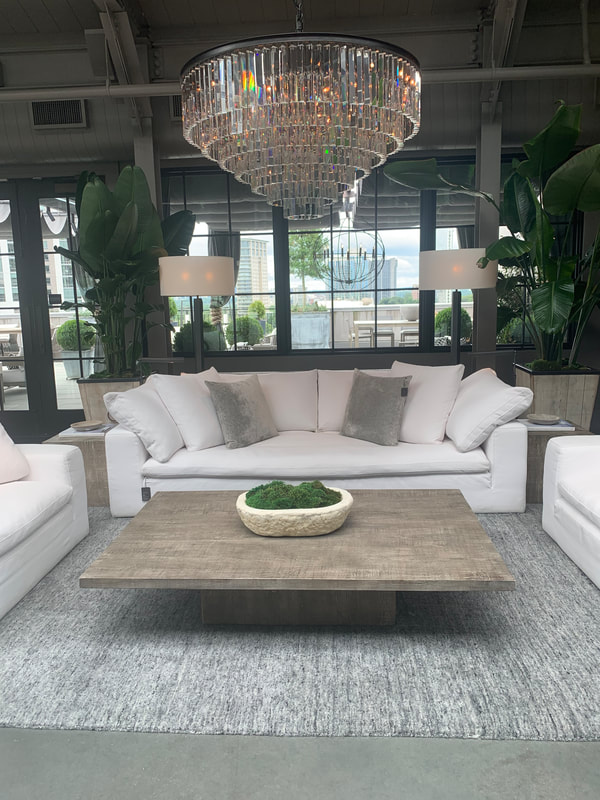
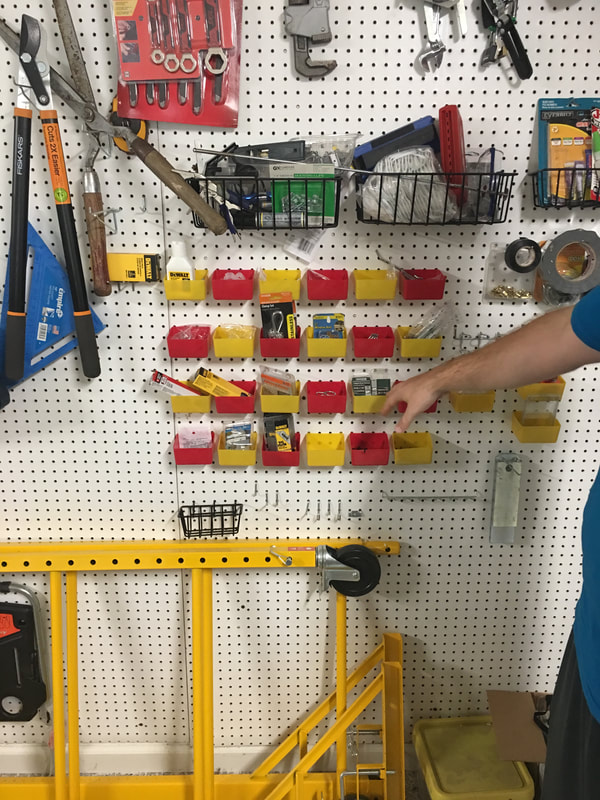

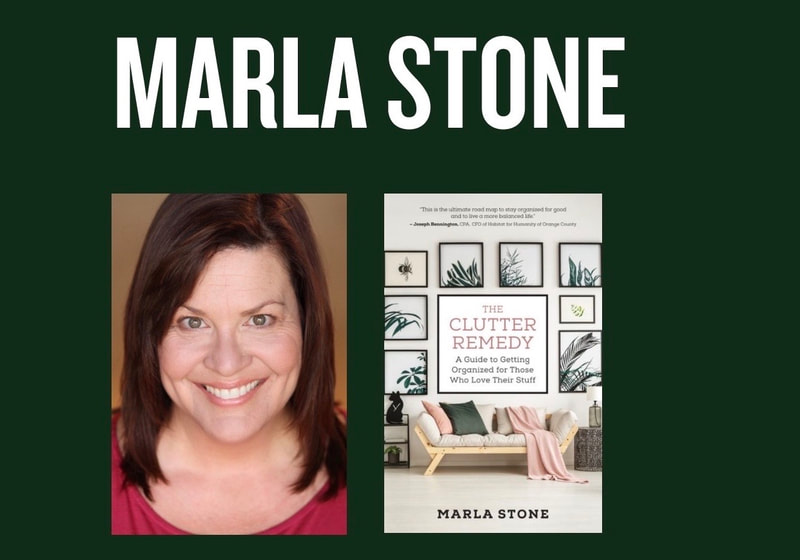
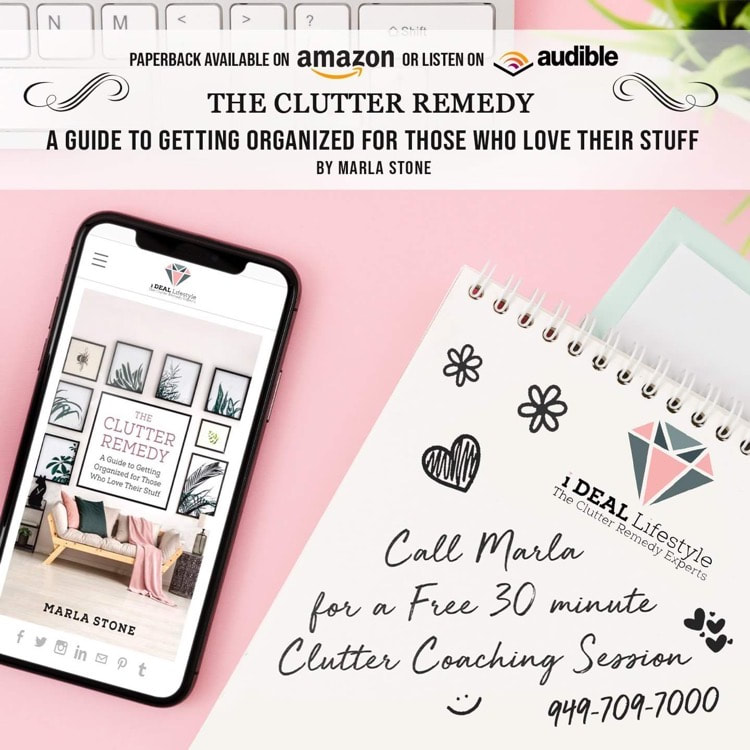



 RSS Feed
RSS Feed